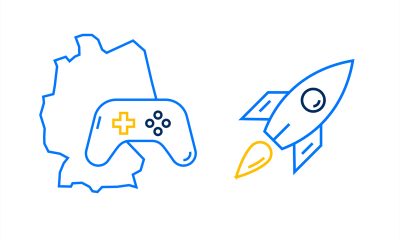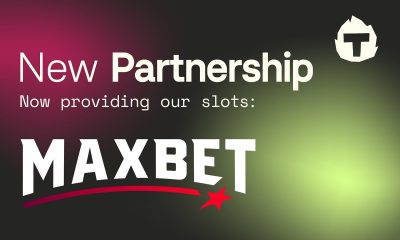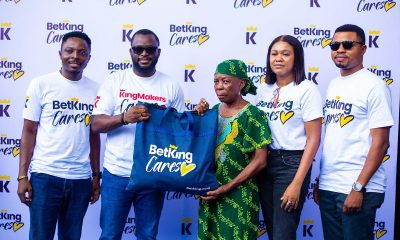eSports
Revealed: What does it take to become an esports star?

- Johan Sundstein aka ‘N0tail’ is the top-ranking esports player of 2020, with $6.9 million in prize money to his name
- The average age of a top-ranking esports player is 24 for male players and 27 for female
- Popular streaming sites have experienced a 20% increase in the number of hours streamed in lockdown
Esports have accelerated into the mainstream in recent years, providing many avid gamers with the opportunity to turn their passion into a career. And with prize funds reaching the millions, being on top of your game certainly pays off. So, what does it take to make it big in esports and how has the industry evolved? Intel explored the ins and outs of the growing esports world.
The making of an esports star
- The most top-ranking male players of 2020 are from China (26%), and the most top-ranking female players are from the USA (42%)
- Physical health must also be a priority when training for esports, as well as in-game performance
As an avid gamer, what would it take to break into the esports industry and what exactly does an esports star look like today?
Based on the 100 top-ranking male and female esports players of 2020, the average age is 24 for male players and 27 for female. Some are even as young as 16, demonstrating that progression is very possible at a young age.
To climb the ranks, players must be committed to perfecting their game and putting in the necessary training, both in-game and physically. Professionals specialise in one or two games, focusing their time and energy on perfecting their performance.
“The best game to get into when moving into professional gaming or streaming is something you actually enjoy,” explains Chris Ball aka ‘Sacriel’. “It’s clear to see when a streamer is forcing themselves to play a type of game they don’t enjoy just because they feel a ‘big’ game is their only option – so instead find something that you can be passionate about.”
Healthy eating and a good night’s sleep are also recommended for optimal performance.
Esports host, Frankie Ward says “Esports teams are beginning to bring their routines in line with more traditional sports. Counter-Strike team Astralis, for example, has a coach, sports psychologist, and a physiotherapist. They also have a nutritionist and a sleep doctor that they can access, should they need extra help.”
Aoife Wilson, Head of Video at Eurogamer also stresses the importance of physical health, adding that players should “make physical training a priority alongside in-game training, which can not only help with focus and mindset, but in preventing strain or injuries that can come with sitting at your computer for prolonged periods of time.”
The esports industry in 2020
- The industry, which is currently worth $1.1 billion in 2020, is projected to be worth $1.8 billion by 2022
- The top competing countries are the USA, China and The Republic of Korea
Esports have come a long way since their conception – from ‘Spacewar’ played on the first ever computer to ‘Dota 2’, best enjoyed on a specialist gaming PC. So, what does the industry look like in 2020?
Today esports have the potential to fill huge arenas with thousands of fans. Not to mention the additional at-home audience watching live competitions streamed online. The Intel® Extreme Masters, held in Katowice in 2017, was one of the largest esports events in history, with a live attendance of 173,000 and viewership of 46 million.
While many live 2020 esports events were forced to cancel in response to the coronavirus pandemic, some went ahead in a virtual format. In fact, popular streaming sites such as Twitch and YouTube experienced a 20% increase in the number of hours streamed in lockdown, suggesting gaming provided solace to many throughout quarantine.
The esports industry has grown by epic proportions in recent years. Over the last five years, revenue has tripled from $325M to $1.1 billion and audience size has quadrupled from 120M to 495M. What’s more, the industry is projected to be worth a huge $1.8 billion by 2022.
While the esports world is very much a global playing field, with players hailing from all around the globe, the top competing countries are the USA, China and The Republic of Korea. 2019 winnings totalled $41.3 million, $18.5 million and $16.5 million for the respective nations.
Streamer Chris Ball aka ‘Sacriel’ says, “as the technical limits on game engines get pushed further and further back with breakthroughs in computing prowess, I think esports and streaming is going to become more mainstream and I look forward to what the new technology brings us.”
You can view the full list of those make it to the top in the eSport industry here.
Powered by WPeMatico
Esportes da Sorte
Esportes da Sorte celebrates Brazilian culture with Parintins and São João Sponsorships

Esportes Gaming Brasil, the owner of Onabet and Esportes da Sorte, is making its debut at the 58th Parintins Folklore Festival with an interactive project that blends cultural promotion, economic development, and social responsibility.
The brand becomes the first regulated betting operator to offer institutional support to the event, which welcomes around 120,000 visitors and generates BRL 184 million in local economic activity, according to the Amazonas State Government.
This cultural commitment comes on the back of Esportes Gaming Brasil sponsoring 31 São João festivals during June in 27 cities across the Northeast and Southeast regions. This initiative strengthens the brand’s strategy of connecting with the public through the appreciation of Brazilian cultural expressions.
Esportes da Sorte’s focus was creating memorable experiences as each event featured scenography by Pernambucan artist Perron Ramos. Another notable element was the Vila Junina (June Village), a themed area blending traditional elements with interactive experiences. Classic games such as Pescaria da Sorte (Fishing of Fortune), Barraca do Beijo (Kissing Booth), and Argola da Sorte (Ring Toss) bring nostalgia to the festivities.
For the three-day Parintins Folklore Festival starting today, the brand will be energising Parintins with a series of experiences celebrating local culture. These include a panoramic lounge with a special view of the Bumbódromo, the Truck da Sorte — a space combining karaoke and free hydration — as well as a Social Arena installed in the Garantido and Caprichoso neighborhoods, featuring artistic performances, rest areas, free water distribution, and Instagram-worthy spots. Festivalgoers will also be able to get their hands on custom giveaways throughout the festival. All elements of the visual project are inspired by Amazonian art. The graphics feature illustrations by Curumiz, a Parintins-based duo formed by Alziney Pereira and Kemerson Freitas.
Sofia Aldin, CMO of Esportes Gaming Brasil, the group behind the brand commented: “Esportes Gaming Brasil cares passionately about regional values and strengthening Brazilian popular culture. It’s more than simply showcasing our brand, we want to create value for the people who live for events like the Parintins Folklore Festival and the São João festivals. Being part of these events backs our strategy of supporting traditions that drive local economies and celebrate regional identities.”
The post Esportes da Sorte celebrates Brazilian culture with Parintins and São João Sponsorships appeared first on Gaming and Gambling Industry in the Americas.
BETBY
BETBY EXPANDS LATAM FOOTPRINT WITH MOBADOO ESPORTS PARTNERSHIP
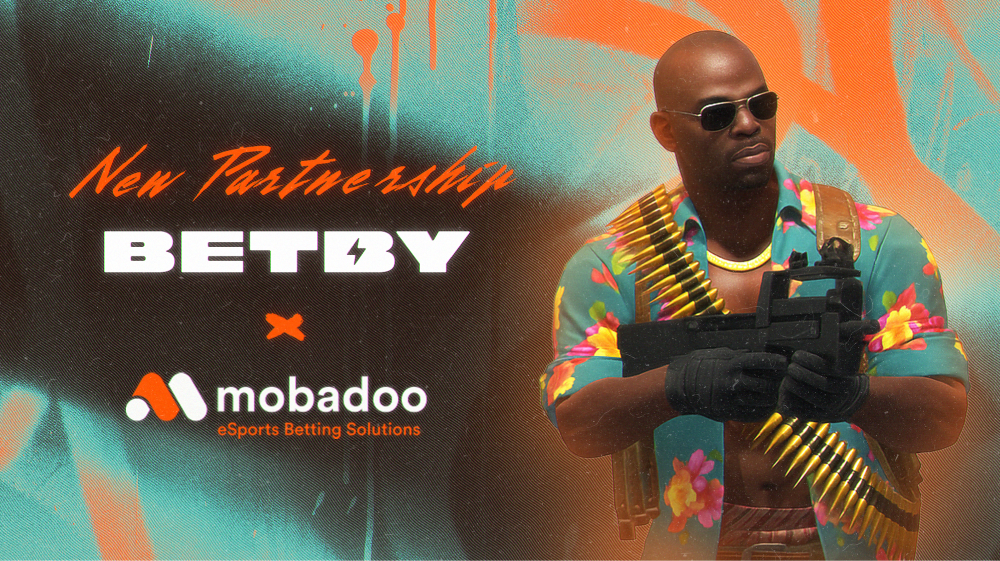
BETBY, a leading sportsbook supplier, has announced a new partnership with prominent LATAM-focused esports provider Mobadoo, in a move that will see its Betby.Games portfolio fully integrated into Mobadoo’s product lineup.
This collaboration enables Mobadoo — which has an established presence and deep market understanding across Latin America — to incorporate BETBY’s proprietary and award-winning esports offering, delivering dynamic and fast-paced betting content to its growing user base. Among Betby.Games’ titles are eSoccer, eBasketball, eFighting, eCricket, eShooter, eHorse Racing, eTennis, and the Brazil-relevant eVaquejada.
As one of the most comprehensive and high-frequency esports betting solutions in the industry, Betby.Games offers access to more than 70 tournaments, over 350 betting markets, and more than 300,000 live matches each month. This collaboration will not only enhance Mobadoo’s offering but also reinforce BETBY’s position as a leading esports supplier in the LATAM region, a key pillar in the supplier’s global expansion strategy.
“Mobadoo has an excellent reputation and strong regional expertise, making them an ideal partner for us. Their commitment to innovation in esports and the rapid growth of this vertical in the region made our partnership only a matter of time,” commented Kirill Nekrasov, BETBY’s Head of Sportsbook Product. “This agreement not only expands the reach of our unique Betby.Games content, but also aligns perfectly with our global strategy of delivering flexible, high-performance esports solutions to next-generation operators. Together, we’re set to further strengthen our leading position in the LATAM region.”
José Aníbal Aguirre, Chief Marketing Officer at Mobadoo, added: “We’re thrilled to integrate Betby.Games into our offering. The depth and quality of their esports content is unmatched, and this partnership gives us a powerful new edge in catering to LATAM’s passionate esports fanbase. With BETBY’s support, we’re confident we can elevate the player experience and unlock new growth opportunities across the region.”
The post BETBY EXPANDS LATAM FOOTPRINT WITH MOBADOO ESPORTS PARTNERSHIP appeared first on Gaming and Gambling Industry in the Americas.
eSports
Red Bull Home Ground Heads to New York this November
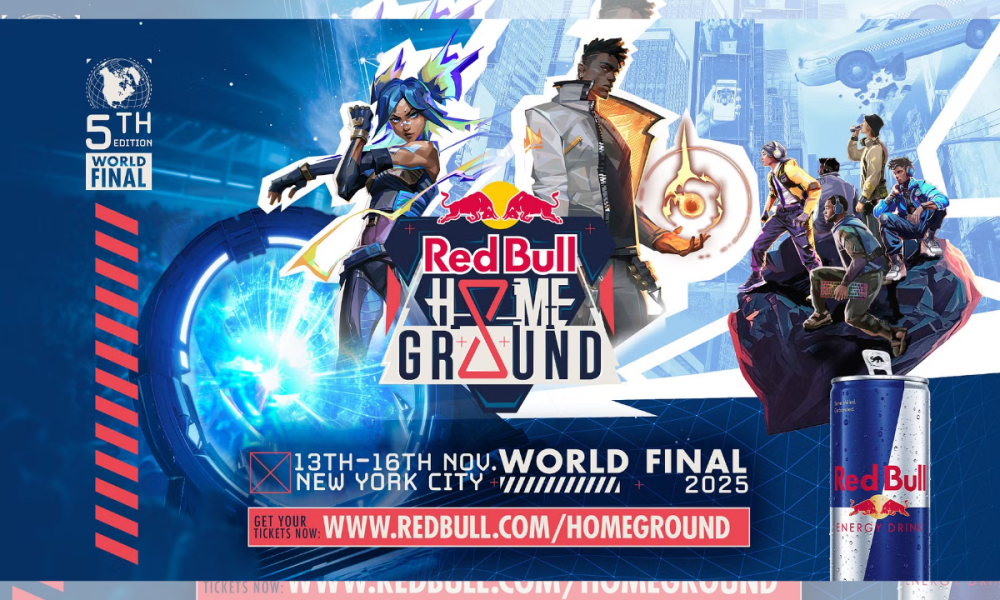
Red Bull Home Ground, the pro VALORANT invitational, is set to make its return with a blockbuster fifth edition, bringing together the world’s top teams to New York City, for one of the most exciting showcases in the esports calendar. From November 13–16, the iconic Hammerstein Ballroom at the Manhattan Center will host four electrifying days of competition, as global giants and rising stars fight to claim the title of 2025 off-season champions.
This year, Red Bull Home Ground will feature a stacked lineup of elite contenders. Returning champions T1 are ready to defend their crown, joined by two-time VCT Global Event winners Fnatic and fan-favourites G2 Esports, Sentinels, and ZETA DIVISION. Joining these giants will be the two top teams who earn their place through the Play-In Stage and an additional team to be revealed – a gauntlet of global qualifiers open to all in India, USA, Spain, Turkey, Chile, Egypt, Belgium, Germany, South Africa, Netherlands, Japan, and EMEA qualifiers, giving players around the world the chance to earn a spot to go against the best-of-the-best on the main stage. The final main stage slot will be revealed at a later date.
For the first time, the Red Bull Home Ground World Final will be hosted in the United States, taking place at the legendary Hammerstein Ballroom in Manhattan. Known for its grand Beaux-Arts architecture and storied history hosting icons like The Grateful Dead and Guns N’ Roses, the venue offers a perfect blend of classic New York legacy and modern spectacle for this high-stakes tournament. The action kicks off on November 13-14, with both days dedicated exclusively to the Play-in stage and the opening stages of the competition. For fans eager to experience the action live, tickets for the public main stage event on November 15-16 are available for purchase via Ticketmaster.
At last year’s Red Bull Home Ground in Berlin, fans were treated to an unforgettable grand final as T1 stormed to victory over Cloud9, clinching the championship title with a dominant 3-1 series. With every edition, Red Bull Home Ground has elevated the VALORANT off-season calendar, known for its fast-paced format, jaw-dropping plays, and international flair. Red Bull Home Ground continues to be a staple tournament for pro teams looking to compete against the best competition and for fans ready to witness thrilling match-ups.
The post Red Bull Home Ground Heads to New York this November appeared first on Gaming and Gambling Industry in the Americas.
-

 Australia7 days ago
Australia7 days agoVGCCC: Minors Exposed to Gambling at ALH Venues
-

 Central Europe5 days ago
Central Europe5 days agoGerman Federal Government Significantly Increases the Budget for Games Funding
-

 Croc’s Lock7 days ago
Croc’s Lock7 days agoFBM® unveils golden treasures in Mexico with Croc’s Lock™ bites
-

 Africa7 days ago
Africa7 days agoSA Rugby Renews its Partnership with Betway
-

 Eastern Europe6 days ago
Eastern Europe6 days agoThunderkick enhances presence in Romania through MaxBet partnership
-

 BETBY6 days ago
BETBY6 days agoBETBY EXPANDS LATAM FOOTPRINT WITH MOBADOO ESPORTS PARTNERSHIP
-

 Africa6 days ago
Africa6 days agoBetKing Delivers Healthcare Services and Nutrition Support to Underserved Nigerian Communities
-

 California State Assemblymember Avelino Valencia5 days ago
California State Assemblymember Avelino Valencia5 days agoNew Bill in California Could End Online Sweepstakes Gaming







